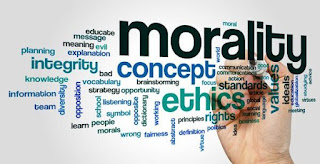Jordan, J. & Sommers, R.
Current Opinion in Psychology
Volume 47, October 2022, 101404
Abstract
Society suffers when people stay silent on moral issues. Yet people who engage morally may appear hypocritical if they behave imperfectly themselves. Research reveals that hypocrites can—but do not always—trigger a “hypocrisy penalty,” whereby they are evaluated as more immoral than ordinary (non-hypocritical) wrongdoers. This pattern reflects that moral engagement can confer reputational benefits, but can also carry reputational costs when paired with inconsistent moral conduct. We discuss mechanisms underlying these costs and benefits, illuminating when hypocrisy is (and is not) evaluated negatively. Our review highlights the role that dishonesty and other factors play in engendering disdain for hypocrites, and offers suggestions for how, in a world where nobody is perfect, people can engage morally without generating backlash.
Conclusion: how to walk the moral tightrope
To summarize, hypocrites can—but do not always—incur a “hypocrisy penalty,” whereby they are evaluated more negatively than they would have been absent engaging. As this review has suggested, when observers scrutinize hypocritical moral engagement, they seem to ask at least three questions. First, does the actor signal to others, through his engagement, that he behaves more morally than he actually does? Second, does the actor, by virtue of his engagement, see himself as more moral than he really is? And third, is the actor's engagement preventing others from reaping benefits that he has already enjoyed? Evidence suggests that hypocritical moral engagement is more likely to carry reputational costs when the answer to these questions is “yes.” At the same time, observers do not seem to reliably impose a hypocrisy penalty just because the transgressions of hypocrites constitute personal moral failings—even as these failings convey weakness of will, highlight inconsistency with the actor's personal values, and reveal that the actor has knowingly done something that she believes to be wrong.
In a world where nobody is perfect, then, how can one engage morally while limiting the risk of subsequently being judged negatively as a hypocrite? We suggest that the answer comes down to two key factors: maximizing the reputational benefits that flow directly from one's moral engagement, and minimizing the reputational costs that flow from the combination of one's engagement and imperfect track record. While more research is needed, here we draw on the mechanisms we have reviewed to highlight four suggestions for those seeking to walk the moral tightrope.
